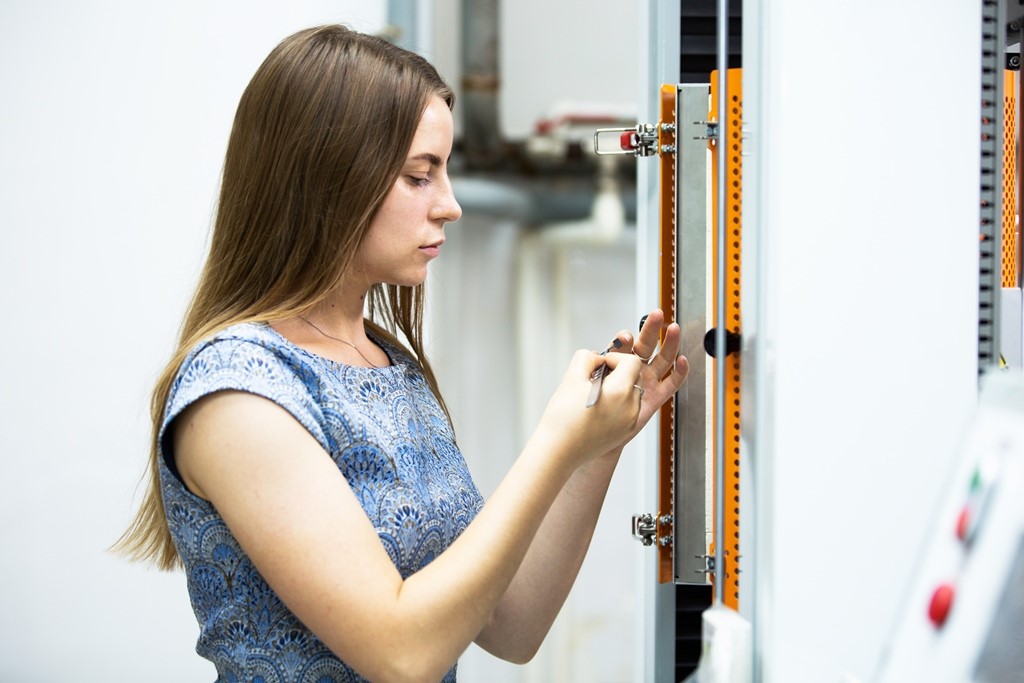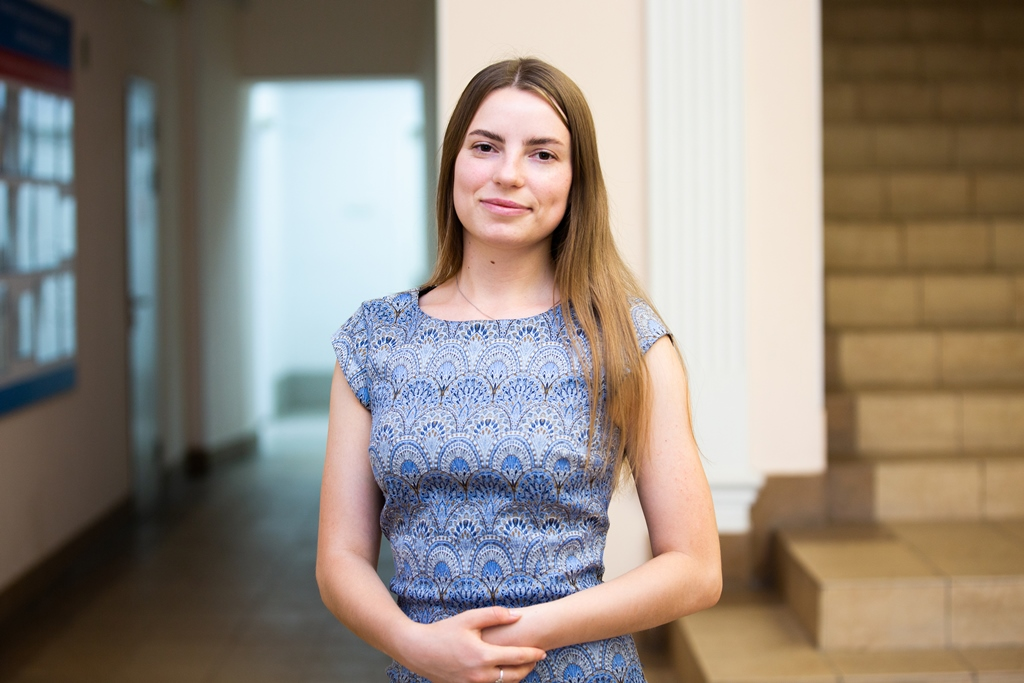
Anna Vyrodova, a post-graduate student of the Faculty of Physics, Tomsk State University, a technician of the Laboratory for Physics of High-Strength Crystals, SPTI, was among the 10 Russian young scientists who received a scholarship of Zhores Alferov, a famous Soviet and Russian physicist, Nobel Prize winner in 2000. The scholarship is awarded for outstanding achievements in Physics and Nanotechnology. Anna was awarded for her work on creation and research of high-entropy alloys (HEAs), novel materials with improved characteristics that are promising for use in various extreme conditions, from the Arctic to space.
“The main topic of my research is the study of the physical nature of solid-solution and strain hardening of single crystals of high-entropy alloys,” Anna Vyrodova says. “We study mechanical properties of multicomponent alloys, their microstructure and deformation features in order to create new methods for strengthening such materials.”
The research is specific as it implies experiments on single crystals, which enable a detailed study of the mechanics of the processes occurring inside crystals in the absence of grain boundaries present in polycrystals. It should be noted that the laboratory research team supervised by Yury Chumlyakov, head of the Laboratory, were the first in the world to learn how to grow single crystals and strengthen them with nanoparticles.
As Anna Vyrodova notes, HEAs can be practically applied in the field of cryogenic temperatures, since, unlike known structural materials, they preserve plasticity, strength and fracture toughness at cryogenic test temperatures. For example, the research team, which involves a TSU postgraduate student, have developed the method for hardening a multicomponent alloy (CoCrFeNi)94Al4Ti2, which withstands critically low temperatures close to –200 °C.

This material is fluid resistant and highly wear resistant. Therefore, the new modified alloy can be used to harden the bow for icebreakers, make wear-resistant cutting material used in the Arctic, and for other purposes.
Currently, Anna Vyrodova is involved in two projects supported by the Russian Science Foundation: “New high-strength mono- and polycrystals of fcc high-entropy alloys strengthened by nanoparticles: from fundamental research on microstructure to deformation mechanisms and mechanical properties” (#19-19-00217, the project leader Irina Kireeva) and “Tension/compression asymmetry in Fe-Ni-Co-Al-X (X = Nb, Ti, Nb-Ti) shape memory alloys – the effect of nanocrystalline particles on functional properties” (#19-49-04101, the project leader Yury Chumlyakov).
Anna is a member of the research team involved in a biomedical MegaGrant aimed at solving one of the most urgent problems in the creation of new medical implants, namely, ensuring maximum patient safety, treatment efficiency and appropriate implant choice. The project is implemented in cooperation with medical materials science specialists from America, Germany, Canada, and South Korea. The research is led by Alexey Volynsky, a scientist from the University of South Florida (USA), expert in surface engineering of biomaterials.
It should be noted that 280 applications were submitted to be competitively selected for prestigious Zh. Alferov scholarship, of which the jury selected 10 applications of young scientists from Tomsk, Novosibirsk, St. Petersburg, Vladivostok, and Moscow. They will receive a personal monthly scholarship in the amount of 20 thousand rubles during the year.
“I am pleased to receive Zh. Alferov scholarship, because it means that I am on the right track, our research is in demand, and this stimulates further professional development,” Anna Vyrodova says. “The scholarship will allow me to take part in international conferences in Russia and abroad, as well as to bring other ideas to fruition.”
Source: TSU Press Service

